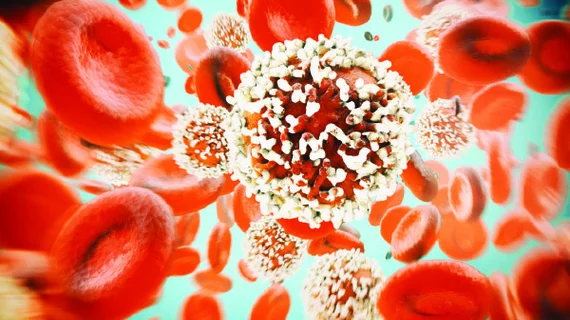Novel optical imaging endoscope may improve cancer detection
Endoscopic imaging experts have created an imaging catheter capable of producing higher quality images compared to traditional methods, researchers reported in a recent Nature Photonics study. The technique may improve cancer and disease detection.
Diagnosing internal organ diseases depends heavily on collecting biopsy samples, but according to co-senior author Melissa Suter, with Massachusetts General Hospital, and colleagues, current endoscopic imaging methods lack the ability to clearly view the regions in question.
The group turned to metalens technology to create their advanced optical imaging tool.
“The use of nano-optic catheters that incorporate metalenses into their design will likely change the landscape of optical catheter design, resulting in a dramatic increase in the quality, resolution, and functionality of endoscopic microscopy,” Suter said in a Harvard release.
Researchers tested their nano-optic endoscope on fruit flesh, pig and sheep airways and human lung tissue. Results showed the technology could image deep into the tissue with “significantly” higher resolution compared to current imaging methods, authors reported.
Images showed cellular structures in fruit flesh and layered tissue and fine glands in the airways of swine and sheep. They could also identify structures in the human lung tissue that indicated a prominent type of lung cancer.
"Currently, we are at the mercy of materials that we have no control over to design high resolution lenses for imaging," said co-author, Yao-Wei Huang, a postdoctoral fellow at Harvard’s John A. Paulson School of Engineering and Applied Sciences, in the statement. "The main advantage of the metalens is that we can design and tailor its specifications to overcome spherical aberrations and astigmatism and achieve very fine focus of the light. As a result, we achieve very high resolution with extended depth of field without the need for complex optical components."

